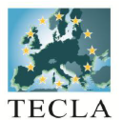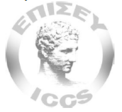The findings from the European Union’s statistical office, from December 2014, saw more than half (51%) of Finnish enterprises in the cloud. Nordic and Benelux countries typically scored highly, with Sweden and Denmark in the top four and Netherlands and Belgium in the top 10. 24% of UK enterprises use cloud computing services.
Overall, 10 nations are ahead of the curve when it comes to adopting cloud services, with the average number at 19%. The most popular service taken to the cloud, not surprisingly, is email, with two thirds of enterprises using the cloud overall (66%) taking advantage of this. Italy (86%) and Croatia (85%) had the most enterprises using cloud email.
More than half (53%) overall use cloud storage facilities, with Ireland (74%), Iceland (74%) and the UK (71%) the leaders there.
The remaining services are utilised by fewer than half of cloud-ready organisations according to the figures; hosting databases (39%), Office software (34%), financial or accounting software (31%), CRM (21%) and computing power for own software (17%). Interestingly Finland, at 66% for email, 54% for storage and 38% for databases, is just above the average.
The most likely reason for EU enterprises not utilising cloud services in 2014 was lack of knowledge (42%), followed by the risk of a security breach (37%). Uncertainty regarding the location of data (33%), uncertainty about applicable law (32%) and the high cost of buying cloud services (31%) were also cited.
Similarly, the risk of a security breach (39%) was the highest limiting factor for those already utilising cloud, followed by the high cost of buying cloud services (32%) and uncertainty over applicable law (32%).
It’s worth noting the tide of North American businesses being ahead of their European counterparts in cloud computing adoption may be turning. Many cloud service providers, such as Salesforce and SoftLayer, are building data centres in Europe to provide less latency and greater data sovereignty for their European customers. Now, it seems that trust is going both ways.
To read more about the topic: cluodcomputing-news















